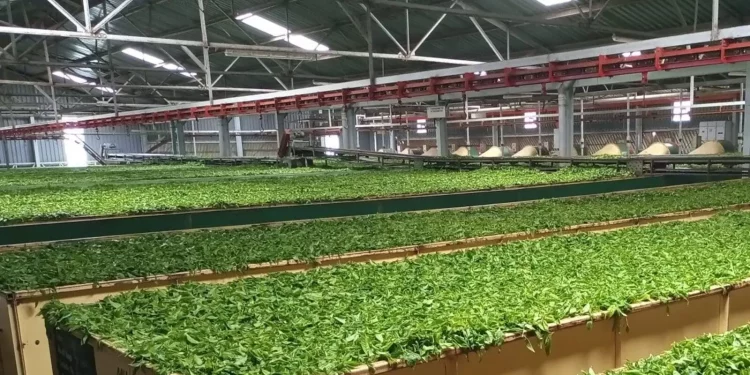The Kenya Tea Development Agency (KTDA) has introduced a Smart Energy Monitoring System within its managed tea factories’ processing operations. This initiative is geared towards enhancing energy efficiency and promoting sustainability throughout the tea production process.
The Smart Energy Monitoring System is, at its core, designed to improve the use of energy through data to enhance tea production and optimize factory processes. It aims to ensure better energy utilization, cut production costs and in turn, boost income for the farmers.
It is currently being piloted at Itumbe and Kiru tea factories under the KTDA Foundation in collaboration with a long-term partner, the German Development Agency, GIZ. The system will be the first of its kind to be deployed in tea factories to manage operational costs through energy efficiency and automation.
During an evaluation of the program at Kiru tea factory, Sudi Matara, the General Manager of KTDA Foundation, emphasized that KTDA aims to utilize energy-efficient systems to reduce operational expenses and decrease carbon emissions, thus contributing to efforts to combat climate change
“We are here to launch the Smart Energy Management System programme that will help us address energy-related costs. If we are able to manage our costs, then that is a gain to the farmer. We are also looking at issues of sustainability and carbon emissions. One of the things that we are doing as an organization is decarbonizing our operations across the tea value chain” said Matara.
The system will allow factories to electronically monitor their energy usage and collect data on important parameters, such as the quantity of biomass utilized in tea processing and the volume of steam generated by the factories.
It system provides detailed reports containing suggestions for reducing energy inefficiencies and maximizing operational efficiency.
One notable feature of the system is its ability to instantly quantify energy consumption by energy source during the factory processing phase, enabling quick decision-making and interventions.
Factories will be able to measure pressure and save the data online for access by the management of the factories, allowing them to make decisions on the operations of the factories.














